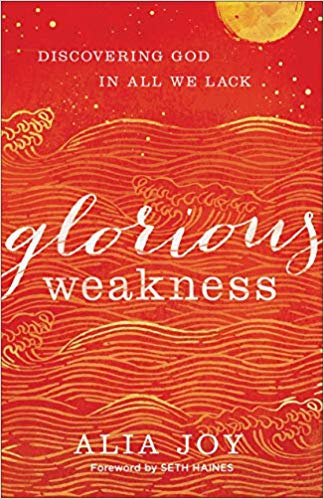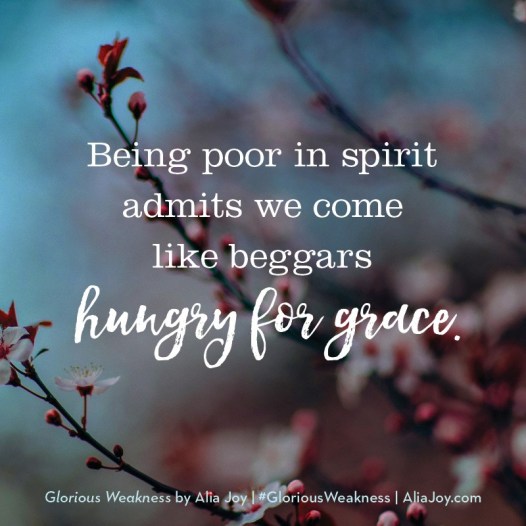
By Nicole Woo
My best friend’s daughter hates her middle name. As a parent, how do you not take that one personally? After all, most of us spend about nine months contemplating, debating, and often agonizing over the matter. We sift through the millions of options, scrutinizing name meanings with a fine-toothed comb. We do the nickname test with first, middle, and last names to ensure survival through middle school, and then veto all options that remind us of mean people from childhood.
Some of us are so weighted down by this heavy responsibility that we are still deliberating on our drive to the hospital. (This happened to my grandparents, who succumbed to the stress by drawing names out of a hat. Thankfully, my uncle was named “George” instead of “Machine Washable.”) Somehow, we all arrive at the “perfect” name. Nailed it!
At least my friend thought so.
10 years later …
Daughter: “Ewe!!!! You named me after a ewe, as in ‘a female sheep’?” she recently lamented in tween dialect. So now she uses just her middle initial on official forms. Although it feels a bit to her parents like a slap in the face, I’m starting to see her point.
After all, the tide has turned in American culture. Who wants to be named after a female sheep when “strong” and “woman” may now proudly exist, side-by-side? This dynamic message is in plain view, everywhere: “Strong is the New Pretty” has replaced “Daddy’s Little Princess” on t-shirts, while Wonder Woman is smashing box office records. (Yeah, you get it.)
This “Strong Girl” movement is fascinating to observe. I sprouted up in the 80’s when playing football at recess and collecting GI Joe’s often earned me “weird girl” status. But now being strong, aggressive and independent is celebrated, embraced and even expected. Pop culture is riding this wave, so shouldn’t we too? It’s easy for me to get swept up in the excitement of it all, and what it might mean for this generation of girls. Lately, though, a few questions are nudging me to proceed with caution:
Is this celebrated version of “strong” the one that’s best for us to hear?
Is weakness really such a bad thing?
Are they mutually exclusive?
Last night I made a mental list of the strongest women I know personally. Honestly, I was pretty surprised at the names claiming the top spots.
My Strong “Girl” List:
• A mentor, in the throes of cancer, thanking God for the captive audience of clinicians who regularly drained fluid from her lungs: she boasted of His faithfulness and goodness at each appointment.
• A loved one, who rises each day resolved to forgive the man who blind-sided her, abruptly ending their long marriage.
• A friend, who recently endured the most complicated and high-risk pregnancy I’ve ever seen. Despite her pain, she selflessly and sleeplessly drags herself out of bed when her needy newborn cries.
Not the top three I imagined.
I thought it would include women like Jessie Graff, acclaimed Ninja Warrior and celebrated stunt double for Super Girl. (Disclaimer: I don’t really know her, but I did get my picture taken with her, so I’m counting it.) I recently saw Jessie complete a Ninja course on one leg, due to a knee injury. That was after she climbed a 40 foot rope, using mostly arm strength. No sweat.
But physical strength was not the defining trait I linked to “strong.” Nor were a slew of other qualities we often associate with the “Strong Girl” movement, like “confident,” “independent,” “leader,” “bold,” and “outspoken.” I am not editorializing these traits; in fact the women on my list have many of them. Rather, it was their entanglement with weakness – their faceoff with uninvited adversity – that spelled STRONG to me. It was their weakness that gave birth to strength.
I’m imagining it now: A rack of sparkling t-shirts at Target proudly proclaiming, “Weak is the NEW Strong.” I know. It’s not like we would just veer our carts over and grab one for those special girls in our lives, right?
(It’s funny how the truth is so often counterintuitive.)
These portraits of weakness, strength, and adversity reminded me of someone else’s. Maybe this “New Strong” is not so new.
The Apostle Paul’s first century resume included blindness, shipwrecks, beatings, imprisonments, and a slew of other undesirable hardships. I’m not an expert in ancient rhetorical criticism, but I think Plato would agree with me that you’d want to hide these red flags for credibility’s sake. But this man, in his relentless pursuit of Christ, did just the opposite. In one letter, we find him celebrating debilitation:
“… I delight in weaknesses, in insults, in hardships, in persecutions, in difficulties. For when I am weak, then I am strong.” –2 Corinthians 12:10
Forget personal image and self-promotion. Strength yielded from weakness was Paul’s M.O. throughout his tumultuous life. (We see this repeatedly in his other letters.) The result: A flame, igniting a radical message – a new way of living – that still burns today.
This ancient antithesis didn’t just start with Paul. It’s a marvelous and mysterious undercurrent throughout the Hebrew Scriptures. We find it running through the stories of people like Ruth, David, Joseph, Rahab, Ester, and Daniel.
This theme flows through the New Testament, too, with no one embodying it more than Christ Himself. Here we find the power Source, and it’s not from ourselves. Paul unabashedly names it in the midst of his own oppressing frailties:
“Three times I pleaded with the Lord to take it away from me. But he said to me, ‘My grace is sufficient for you, for my power is made perfect in weakness.’ Therefore I will boast all the more gladly about my weaknesses, so that Christ’s power may rest on me.” –2 Corinthians 12:8-9
Christ’s power. This is the catalyst that sweeps us beyond “the triumph of the human spirit” as we lock horns with adversity. I’ll freely admit: this is a mystery I’ve experienced, but still can’t understand. This is the same power I see carrying the strongest women in my life. It’s the power I want my friend’s daughter to see and embrace as she witness Christ’s strength in others, and discovers it in the inevitable hardships she will face herself. Because someday her own strength will not be enough, and she’ll be stuck on a 40 foot rope that she cannot possibly climb.
Do I want to see a generation of strong daughters?
Absolutely.
But the Source of strength we can point them to eclipses anything a t-shirt or even a movement can offer: When it begins with weakness, it can end extraordinarily with Christ’s power. It’s then that we, and our beloved daughters, are truly strong.
Maybe even strong enough to embrace a middle name.
As Christ followers,
How can we underscore this message of “strength in weakness” to the girls and women in our lives?
Can we inject this truth into conversations within the “Strong Girl/Strong Woman” movement? What would that look like?
About Nicole:
 Despite a deep desire to belong, Nicole Woo often finds life nudging her to the margins. She’s been the only girl on the team, the only public speaking teacher afraid of public speaking, the only Caucasian in the extended family photo, and the only mom who lets her kids drink Fanta. She calls the Rockies home, often pretending to be a Colorado native in spite of her flatland origins.
Despite a deep desire to belong, Nicole Woo often finds life nudging her to the margins. She’s been the only girl on the team, the only public speaking teacher afraid of public speaking, the only Caucasian in the extended family photo, and the only mom who lets her kids drink Fanta. She calls the Rockies home, often pretending to be a Colorado native in spite of her flatland origins.
GIVEAWAY:
 If you share my last post and tag me in it on Instagram, Facebook or Twitter, I’ll enter you to win either a copy of A Voice Becoming (see my review here) or the first edition of a fantastic new magazine for girls called Bravery. The giveaway will end on January 31, 2018. Sorry, I can only mail to U.S. residents!
If you share my last post and tag me in it on Instagram, Facebook or Twitter, I’ll enter you to win either a copy of A Voice Becoming (see my review here) or the first edition of a fantastic new magazine for girls called Bravery. The giveaway will end on January 31, 2018. Sorry, I can only mail to U.S. residents!

Sign up for my mid-month digest and end-of-month secret newsletter to stay updated on all the posts as well as to get links to interesting books, podcasts, recipes and articles I’ve come across this month.
Sign up for my Mid-month Digest and Secret Newsletter Here:
***This post contains Amazon Affiliate links (no extra cost to you, pennies to me!)







 Despite a deep desire to belong, Nicole Woo often finds life nudging her to the margins. She’s been the only girl on the team, the only public speaking teacher afraid of public speaking, the only Caucasian in the extended family photo, and the only mom who lets her kids drink Fanta. She calls the Rockies home, often pretending to be a Colorado native in spite of her flatland origins.
Despite a deep desire to belong, Nicole Woo often finds life nudging her to the margins. She’s been the only girl on the team, the only public speaking teacher afraid of public speaking, the only Caucasian in the extended family photo, and the only mom who lets her kids drink Fanta. She calls the Rockies home, often pretending to be a Colorado native in spite of her flatland origins. If you share
If you share 